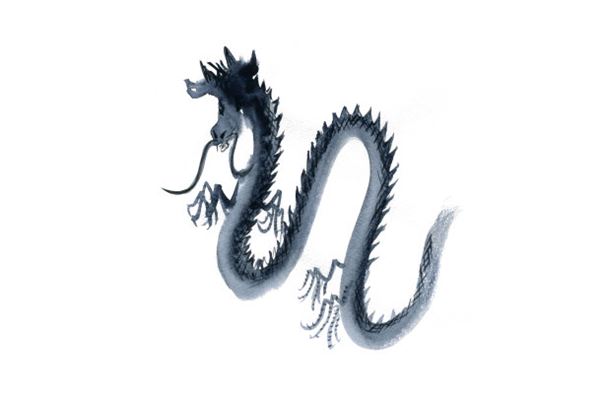Principles of dream interpretation
Principles of dream interpretation
After the scientific understanding of the dream, the mystery of the dream is gradually lifted, in front of the dream, people are not as ancient as the dream, and no longer afraid of what gods are secretly spying, the original dream can not only be known, but also can be controlled, and the dream is indeed different from our general imagination, although part of it, but to fully understand it still need human beings to explore. On the basis of our current understanding, we can make the best use of this free resource to serve ourselves. In order to do this, we need to master some methods of interpreting dreams, so that you do not misunderstand what the dream means to you.
On the basis of determining the reliability of the dream report, we also determine whether the interpretation of the dream is reliable and accurate. When a dream interpreter interprets a dream, do we not also ask him: 'You say that your interpretation is right, on what basis?' Now, before we talk about the method of interpreting dreams, let us first grasp the principles of judgment that determine whether an interpretation is correct or not.
First, there should be no inherent contradiction in the interpretation itself, and at least part of the content of the dream should be explained.
If the interpretation of the dream is not consistent, reasonable, even most of the content of the dream can not be explained. Then no one will believe such an explanation. If an interpretation can explain the meaning of all the details of the dream, so much the better. Such as the following dream of Ms. Feng:
'I was walking down the street in the summer wearing a straw hat of a strange shape, with the middle part bent upward and the brim falling down, and one side hanging lower than the other. I was happy and confident, and as I walked past some of the young officers, I thought to myself: You can't do anything to me.'
The master of dream interpretation explained it this way: 'The hat is actually a male reproductive organ, which is partially raised in the middle and partially drooped on both sides. Her hat might particularly have been supposed to be a man, and eventually one would have said, 'Get under the hat,' which means (in German) to get married. ... Because if her husband had such good genitals, she wouldn't have to fear the officers. That is to say, she does not expect anything from them.' Freud's interpretation of the dream is very good, completely self-explanatory, and all the details are explained, and the interpretation of the various details can be connected to each other
As a whole. Hats are genitals, which explains why they bulge in the middle and droop down the sides. In the dream, 'None of you can do anything to me' meant that the officers could not tempt her. This ties in with the previous explanation of the hat. Therefore, we say that this explanation has a certain degree of reliability.
However, the mere satisfaction of this principle does not necessarily mean that the explanation is correct. A good explanation should also satisfy the second principle.
Dream interpretation should be able to explain the relationship of dreams to non-dream stimuli or life events, and to infer or predict these stimuli or life events. Good dream interpretation can infer or predict unknown content. Taking Freud's interpretation of the 'hat' dream as an example, Freud was convinced that his interpretation was correct for two other reasons:
First, Ms. Feng who has this dream has agoraphobia, and she is worried that going out alone will be tempted by men. The theme of the dream was: 'If my husband's genitals were intact, I wouldn't be afraid of temptation.' It was clear that the subject of the dream was closely related to the agoraphobia with which the woman was now troubled.
Second, according to the interpretation, the brim should represent the testicles. One side of the brim was lower than the other, and Ms. Feng was later
Confirmed that, indeed, one of her husband's testicles was lower than the other.
This external evidence is very convincing, and it has been experienced that if the interpreter can infer one thing about the dreamer through the dream, the dreamer will trust his interpretation.
For example, one woman said she had the same dream many times a few years ago, that she was catching a train, and when she got to the station, the train had just left. The interpreter told her that maybe she was facing an opportunity, and she was very worried that she wouldn't make it. When the interpreter asked her if she was facing an opportunity or a turning point to change her destiny, she said:
'Yes, I'm planning to work in Shenzhen. A classmate went to Shenzhen and told me it was good, but I was afraid I had missed my chance and there were not many job opportunities left in Shenzhen.' At this point, she added: 'Now I know what this dream is all about. At that time, I thought this dream was unlucky and hated it so much that I didn't even want to wear the clothes I wore in the dream... ' The interpreter interrupted her and said, 'Does the dress in the dream have any special marks? I'm telling you, every detail in a dream means something. You noticed in your dream that you were wearing this dress, which means that this dress must have something to do with your intention to go to Shenzhen. Otherwise, you wouldn't dream of it.' She thought for a moment and suddenly said, 'That's right.
That dress was given to me by a friend of mine in Shenzhen.' Then she said, 'How well you explained it!'
Moreover, after the dreamer hears the interpretation of the dream interpreter, he should feel that the explanation is reasonable, and even have a feeling of enlightenment. Although the dreamer cannot interpret his own dreams, he can 'intuitively' determine whether a certain interpretation is correct. Therefore, if the interpretation of the dream is accurate, the dreamer will say, 'Yes, your explanation makes sense,' or 'I see.' Sometimes the dreamer will have an aha moment and tell you, 'I totally get it. That's right.' At such times, the dreamer will firmly believe in this interpretation.
This is because the dreamer knows the answer subconsciously, but he is unable to bring the answer into his consciousness. Once the correct interpretation appears, the dreamer can experience it immediately.
There are cases, however, when the dreamer hears an explanation and strongly disagrees, objecting to the correctness of the explanation. This does not mean that the explanation is necessarily wrong. If the dreamer is calm when he objects, then perhaps this explanation is indeed wrong, but if the dreamer is too agitated when he objects, and denies too strongly, then this explanation is correct. This shows that this explanation hits the dreamer to the core, uncovers his scars, and reveals the inner truth that dreams dare not face.
The dreamer is aware that this interpretation is correct, so he is afraid to let others see his heart, and does not dare to let himself face his heart. It was out of fear that he vehemently denied the explanation.
 Dream of each other's love words
Dream of each other's love words  Black Dragon
Black Dragon